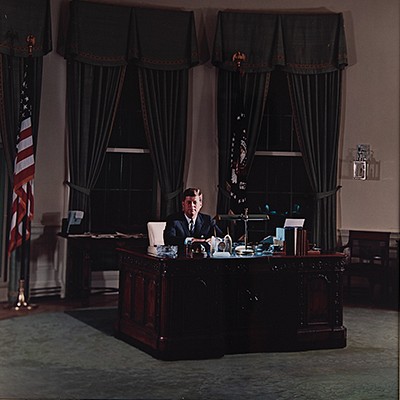Napoleon Letter Signed on Conscription and Organization of Troops
Two ways to bid:
- Leave a max absentee bid and the platform will bid on your behalf up to your maximum bid during the live auction.
- Bid live during the auction and your bids will be submitted real-time to the auctioneer.
Bid Increments
| Price | Bid Increment |
|---|---|
| $0 | $5 |
| $50 | $10 |
| $200 | $25 |
| $500 | $50 |
About Auction
Nov 8, 2023
RR Auction's November Fine Autographs and Artifacts auction offers an extraordinary and wide-ranging selection of the rare and remarkable. RR Auction support@rrauction.com
- Lot Description
LS in French, signed “Np,” one page, 7.25 x 9.5, January 30, 1808. Letter to his Minister of War, Henri-Jacques-Guillaume Clarke, in part (translated): "General Clarke, I am going to raise the conscription for 1809, it is convenient that the army is organized beforehand and that at least the location of the depots is fixed. Describe to me the organization project concerning the formation of the companies and the fifth battalion again that you have already provided [and] continue your considerations on the formation of the legions, especially since this formation can only take place next year." In fine to very fine condition.
Napoleon built directly on the Directory's conscription law of September 1798 with quotas of conscripts for every département based on communal birth registers. The annual conscription levy was a top priority for the prefects who had to deal with chronic resistance to the unpopular system. Napoleon initially set the quota at 60,000 Frenchmen annually, but by 1810 it already hit 120,000. While Napoleon could still replenish his army with conscripts following the Russian disaster in January 1813 by calling up the class of 1814 a year early and enforcing several supplementary draft calls, the decisive defeat in the Battle of Leipzig in October 1813 depleted the army beyond the capacities for compensation. A final call for the conscription of 300,000 men in November 1813 went largely unfulfilled.
Henri-Jacques-Guillaume Clarke, 1st Count of Hunebourg, 1st Duke of Feltre (1765-1818) was a French general and politician who made a career in the Revolutionary Army and under Napoleon. In 1793 he was promoted brigade general and commanded the vanguard of the Rhine Army. During the Reign of Terror, he fell under suspicion, was briefly arrested, and discharged. Lazare Carnot restored Clarke to his rank in 1794 and, in December 1795, he was made a general of division, serving under Napoleon in the Army of Italy for several years. During the War of the Third Coalition in 1805, Clarke was appointed governor of Vienna, and during the War of the Fourth Coalition in 1806 he served as governor of Erfurt and of Berlin. Napoleon called Clarke back to Paris in 1807 to serve as Minister of War, a difficult office that he administered with skill, but with a level of personal ambition that raised Napoleon's suspicion from 1812. His opportunism became most evident at Napoléon's fall in 1814, when Clarke voted to depose the emperor and was appointed Peer of France by Louis XVIII in return. Apart from the interruption of the Hundred Days from March to September 1815, Clarke served as Minister of War in the restored Bourbon Government until September 1817. Clarke was made Marshal of France on 3 July 1816 and, following the end of his term as minister, took command of the 15th Military Division until his death in 1818. - Shipping Info
-
Bidder is liable for shipping and handling and providing accurate information as to shipping or delivery locations and arranging for such. RR Auction is unable to combine purchases from other auctions or affiliates into one package for shipping purposes. Lots won will be shipped in a commercially reasonable time after payment in good funds for the merchandise and the shipping fees are received or credit extended, except when third-party shipment occurs. Bidder agrees that service and handling charges related to shipping items which are not pre-paid may be charged to a credit card on file with RR Auction. Successful international Bidders shall provide written shipping instructions, including specified Customs declarations, to RR Auction for any lots to be delivered outside of the United States. NOTE: Declaration value shall be the item’(s) hammer price and RR Auction shall use the correct harmonized code for the lot. Domestic Bidders on lots designated for third-party shipment must designate the common carrier, accept risk of loss, and prepay shipping costs.
-
- Buyer's Premium



 EUR
EUR CAD
CAD AUD
AUD GBP
GBP MXN
MXN HKD
HKD CNY
CNY MYR
MYR SEK
SEK SGD
SGD CHF
CHF THB
THB




